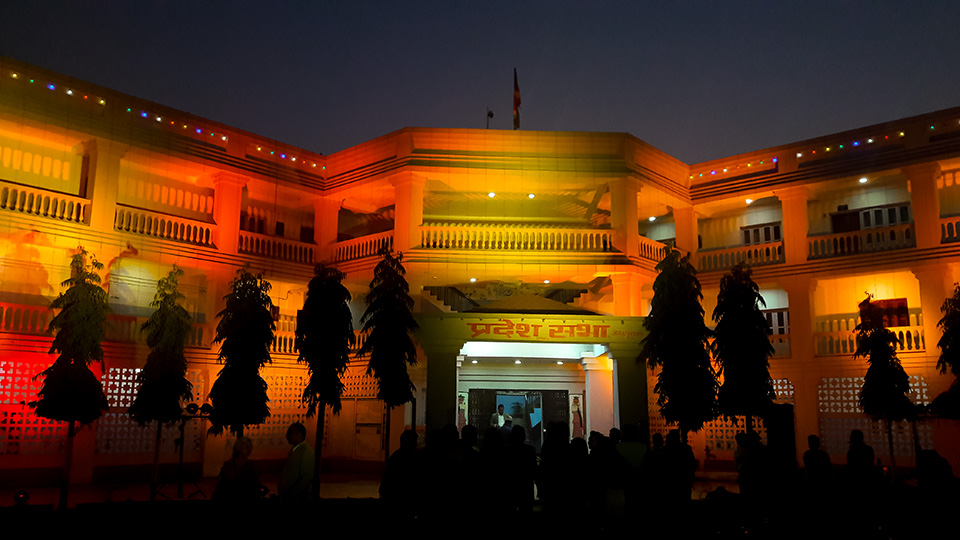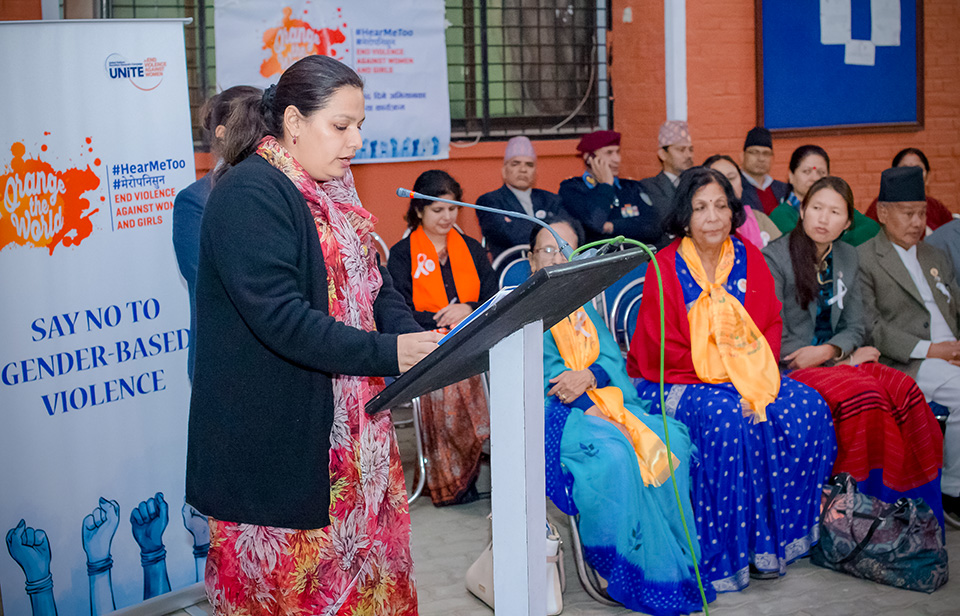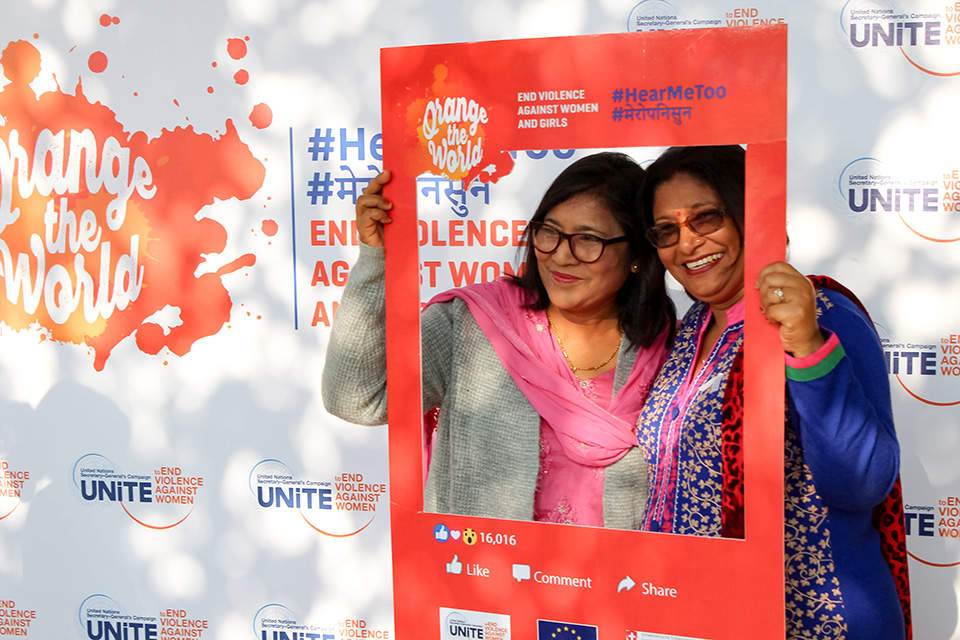All seven Provincial Assemblies in Nepal go orange for the 16 Days of Activism
Date:
Author: Sadichchha Pokharel
Kathmandu, Nepal — All seven Provincial Assembly buildings across the country were lit up in orange to commemorate the International Day for the Elimination of Violence against Women on 25 November, the first day of the global 16 Days of Activism against Gender-Based Violence Campaign. Events were organized by the United Nations Country Team (UNCT) Nepal and the International Development Partners’ Group, in collaboration with the seven Provincial Assemblies.

“We must shed a light on the actual prevalence of violence and make sure that reporting increases,” said Chief Minister of Gandaki Province, Prithvi Subba Gurung. In Nepal, gender-based violence often goes unreported due to the shame and stigma surrounding it.
According to the Nepal Demographic Health Survey 2016, 22 per cent of women aged 15 to 49 acknowledge experiencing physical violence. “The low figures do not mean there is less violence, but that the violence is not exposed,” Gurung added, while addressing the Provincial Assembly members.
Interactive programmes on preventing and addressing gender-based violence were organized with more than 500 members of Provincial Assemblies, staff, Ministers, civil society representatives, development partners and media, simultaneously and in all seven provinces. During the interactions, participants discussed the current situation of gender-based violence in Nepal, its causes and consequences and the role of parliamentarians in preventing gender-based violence.
“It is important to listen to stories from every household,” said Sushila Mishra Bhatta, Deputy Mayor of Dhangadhi Sub-Metropolitan City, Province 7. “It is important to listen to our girls, our boys, our next-door neighbours.”

This year’s campaign theme— “Orange the World: #HearMeToo”— is a call to listen to, and believe, survivors and to end the culture of silencing and normalization.
Senior representatives from UNDP, UNFPA, UNHCR, UNICEF and UN Women participated in the interactive sessions and ‘oranging’ events. Similarly, the campaign also received strong support from the Development Partners’ Group.
Speaking at the event in Gandaki Province on 25 November, Deputy Head of Delegation for the European Commission Zane Petre said: “Ending violence against women and girls is on top of the European Union’s global agenda, and we have joined hands with the United Nations to mobilize all efforts and actions in education, awareness-raising, prevention and delivering justice, to end gender-based violence.”
The events were financially supported by the Embassy of Switzerland/Swiss Agency for Development and Cooperation (SDC). Expressing her solidarity with the campaign, H.E. Elisabeth Von Capeller, Ambassador of Switzerland to Nepal, said the 16 days of Activism have “the extraordinary strength to unite all different kinds of stakeholders, make them aware and accountable in ending violence against women and girls. Committed to the elimination of all forms of discrimination, including gender-based violence, Switzerland is honoured to support such a campaign.”
Participants in the interactive programmes expressed their solidarity with the global campaign and committed to work together to improve the situation of women and girls in their provinces, calling for collaboration between provincial governments, the UN and development partners in addressing violence.

Nepal’s progressive Constitution, as well as the Civil Code adopted in 2018, ensure the rights of those affected by gender-based violence. But legislation is not enough, said Padma Khadka, Provincial Assembly Member of Karnali Province: “One of the major challenges to fighting gender-based violence is the lack of awareness about the laws that are currently in place. Laws alone do not solve the problem. What we need to focus on is their effective implementation.”
At an interaction in Karnali Province, Ayshanie Labe, Deputy Country Director of UNDP said: “Today’s discussions reveal that gender-based violence is a complex and multidimensional problem, embedded within the broader socioeconomic, political and cultural context. This calls for a multi-stakeholder approach to fight gender-based violence.”
Echoing this, Gitanjali Singh, Deputy Representative of UN Women Nepal, speaking in Province 3, said: “Ending violence against women and girls is not a short-term endeavour. It requires coordinated and sustained efforts from all of us. It is our responsibility to work together to change discriminatory norms and practices, to shift the power imbalance, and ensure that no one is left behind.”
Joining hands with the global UNiTE movement, the interactive programmes ended with the Speakers of the Provincial Assemblies lighting their respective buildings orange, symbolizing their commitment to work for a country in which gender-based violence is eliminated.